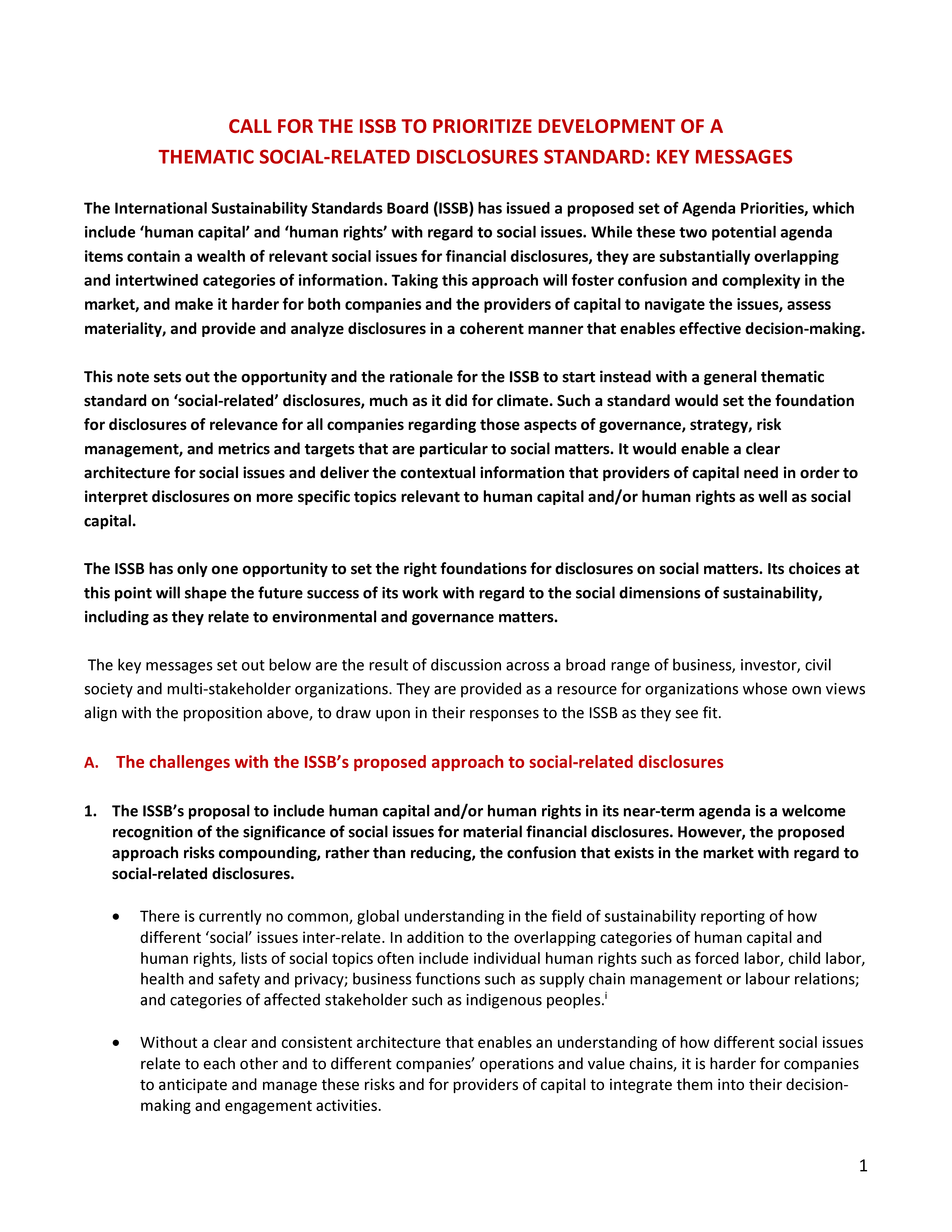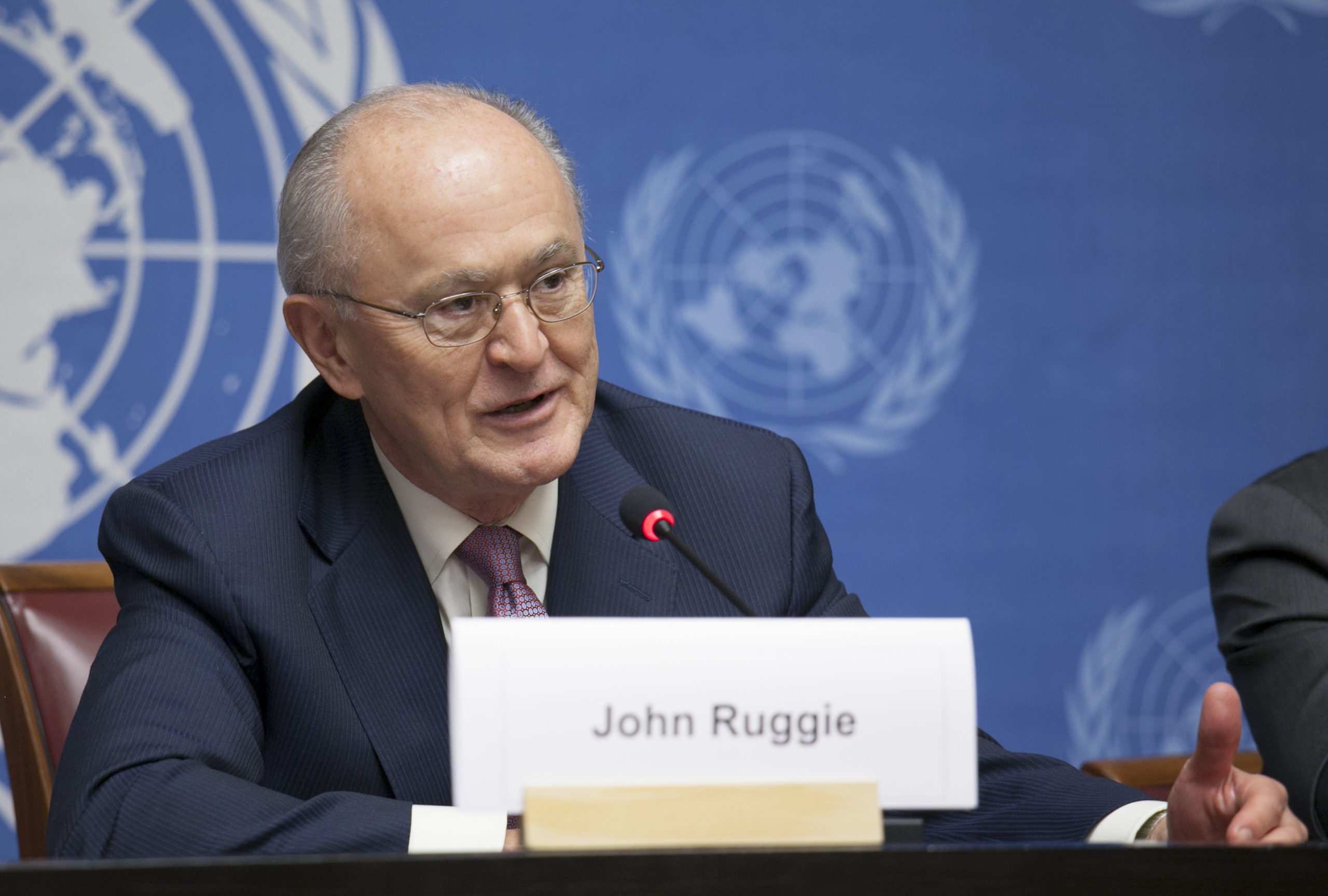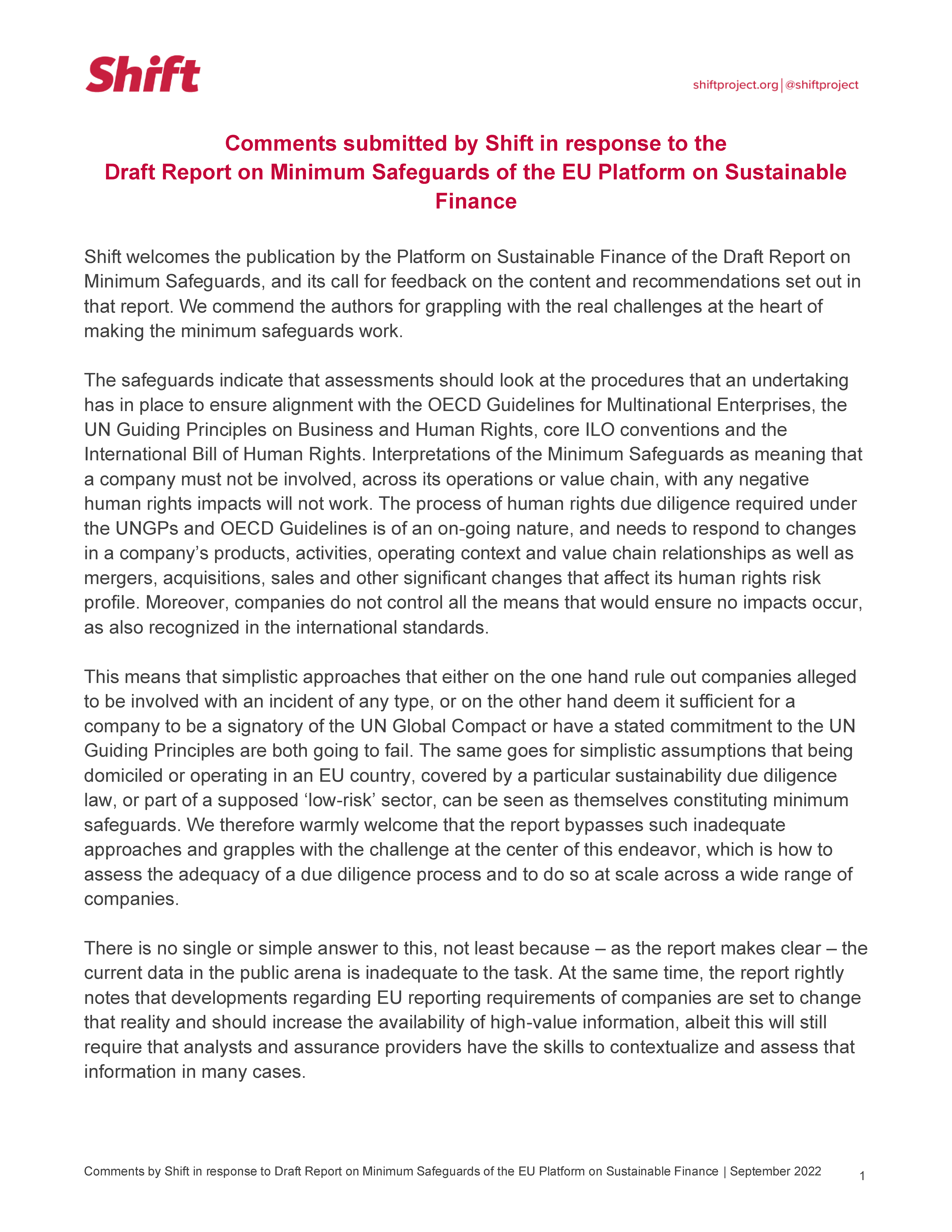14 December 2023
Shift – the leading non-profit centre of expertise on the UN Guiding Principles on Business and Human Rights (UNGPs) – welcomes the provisional political agreement reached this week between the European Commission, Council and Parliament on the final outline of the EU Corporate Sustainability Due Diligence Directive (CS3D). It lays the groundwork for a new corporate sustainability due diligence duty that is substantially aligned with the authoritative standard of the UNGPs. This is an essential step towards the implementation of comprehensive human rights and environmental due diligence in the EU single market. It is also a pivotal moment in the creation of the “new regulatory dynamic” that John Ruggie, the author of the UNGPs, intended the UNGPs to inspire.[1]
This agreement reflects hard work by the negotiators over many months, and inputs from a wide array of stakeholders from business, civil society, trade unions and international organizations. We congratulate the consecutive Presidencies of the Council, MEP Lara Wolters and the Parliament’s Shadow Rapporteurs, and Commissioner Reynders on the positive result.
In welcoming the political agreement, Shift’s Co-Founder and Vice President, Rachel Davis, said:
“Just over a decade on from the adoption of the UN Guiding Principles on Business and Human Rights, the EU is leading the way in using them to create a binding standard – the EU Corporate Sustainability Due Diligence Directive. The momentous political agreement reached this week lays the groundwork for a new corporate sustainability due diligence duty that is substantially aligned with the UNGPs.
To ensure that the CS3D is meaningful for workers, communities and others affected by business, as well as manageable for companies, it will be vital that guidance, accompanying policy measures and enforcement continue to interpret key concepts in the duty in line with the international due diligence standards. Importantly, there is also room to improve the alignment between the Directive and those standards in the coming years in relation to due diligence in the sale of products and services and in the financial sector. For now, this agreement confirms that companies that have been following the international standards are on the right track and can continue to rely on them.”
Throughout the debate, Shift and many other stakeholders have consistently highlighted key features of a final Directive that are central to alignment with the international due diligence standards – the UNGPs and OECD Guidelines for Multinational Enterprises. The positions of the institutional negotiators have increasingly built on those standards as the process has moved forwards. This political agreement now ensures that the new due diligence duty will be grounded in a risk-based approach that:
- covers the different ways in which companies may be involved with adverse human rights and environmental impacts and differentiates the action that is expected of them in response, including to provide or enable remedy;
- allows companies to prioritize impacts that are the most severe from the perspective of those who are affected, and the most likely;
- expects companies to address how their business strategies and own activities, including purchasing practices, can enhance or reduce risks.
The duty includes other key elements that companies can and will need to interpret in line with the international standards to ensure they are effective in practice, namely:
- when taking appropriate measures to prevent and address impacts involving their business relationships, ensuring that the use of contractual leverage is accompanied by broader capacity-building measures to support due diligence through a partnership rather than ‘policing’ approach;
- when considering disengagement from a business relationship, investing in time-bound plans to increase leverage – while also recognizing when there are no reasonable prospects that their use of leverage can be effective;
- when engaging with stakeholdersin the context of human rights impacts, ensuring that they focus on those who are affected (ie, workers, communities and others affected by the company’s operations, products or services) and their legitimate representatives (such as trade unions);
- when implementing notification mechanisms and complaints procedures, ensuring that they are likely to be trusted by users by following the effectiveness criteria for grievance mechanisms in the UNGPs.
The duty will be enforced through both civil liability – which will require a causal connection between the company’s actions or omissions and a harm – and administrative supervision. The agreement provides that the Directive will include access to justice measures in relation to representative actions, limitation periods and disclosure of evidence. It also provides that companies will be required to put in place climate change transition plans that align with the Paris Agreement.
EU Member States and the Commission are expected to adopt accompanying policy measures and issue authoritative guidance. These should draw on the past decade of interpretation and practical implementation of the international standards to ensure that the CS3D delivers on its promise of better outcomes for affected stakeholders and the environment.
However, there are some critical gaps between the Directive and the UNGPs where there is a need to improve alignment in the coming years. In these areas, it will be important that companies continue to look to the international standards to inform their approach. In particular:
- while the duty covers all impacts arising in a company’s ‘upstream’ business relationships (including design), it covers some but not all ‘downstream’ impacts. It does cover those arising from distribution, transport and waste management, but impacts arising from sale are not explicitly covered;
- while the duty applies to companies across all sectors of the real economy, it will not apply to any downstream business relationships in the financial sector. However, a review clause requires this to be revisited in due course and financial institutions will be expected to adopt climate plans;
- while the duty will apply to the largest companies headquartered or operating in the EU, and additional companies in some higher-risk sectors, this is only a sub-set of the companies that are already required by new EU reporting standards to disclose how they are managing their sustainability impacts.
It will be essential for the EU to revisit these aspects of the scope of the legislation in the coming years; at the same time, they do not negate the significance of the political agreement on the core of the new due diligence duty.
Shift looks forward to remaining constructively engaged to support the formal adoption of the final CS3D text, its transposition into national laws, and the development of guidance, accompanying policy measures and enforcement regimes.
[1] Keynote address at the conference by the Finnish Presidency of the Council of the EU in Brussels in 2019




